
Cat owners may unfortunately become aware of the discomfort and inconvenience of a skunk spray situation. It may surprise some people to hear that cats also get sprayed by skunks from time to time. The debate on whether or not cats should be allowed to roam outside or not can get pretty heated in some circles and I won't get into the detailed pros and cons of either side in this article.
However, if you allow your cat to roam outdoors, you should stay aware of things that your cat may encounter that an indoor-only cat would not, and that includes skunks.
Skunks are native to North and South America and are related to such critters as badgers and otters. Many closely related species can create their very own, pungent, musky odor in their scent glands but skunks are the only ones with the ability to forcefully spray it up to 15 feet.
Skunk spray is produced in the anal glands of the skunk and used for self-defense. It is a yellow oil composed of several different compounds including thiols. Thiols can bind quickly and strongly to skin proteins and have a "rotten egg" odor that also irritates the eyes and lungs. When a skunk is scared, they can and will spray this liquid directly at whatever is pursuing them.
If your cat gets skunk spray in or near its eyes they may become red and irritated. If this happens you will want to immediately flush your cat's eyes out. There are different products available on the market that are safe to use in this way but the best option is an over-the-counter sterile eye wash. If you live in an area where skunks are common, it wouldn't hurt to keep some on hand. If skunk spray gets in your cat's mouth or nose, you may also see such signs as drooling, vomiting, nausea, or sneezing. Skunk spray can also, in rarer cases, cause serious and acute anemia in cats. If you are seeing any symptoms of spray in your cat's eyes, mouth, or nose, take your cat to the vet immediately. It is also important to keep in mind that skunks, like many wild mammals, can carry infectious diseases including rabies. You should always make sure your cat is up-to-date on vaccines and contact your vet if you suspect there was a physical encounter in addition to the spray.
If your cat seems to have gotten away from its skunk encounter with just a noxious smell you will still want to get rid of the smell. In years past, homemade tomato juice-based recipes were the remedy of choice, but the results weren't always the greatest.
Instead of tomato juice, the most effective homemade remedy to de-skunk your cat, after consulting a veterinarian, is to make a solution of one quart of 3% hydrogen peroxide, one-fourth of a cup of baking soda, and one to two teaspoons of liquid hand soap. You will want to wear rubber gloves as you work this solution into your cat's coat before rinsing him thoroughly. It's important to not leave the solution on too long, as the peroxide may bleach your cat's fur after prolonged exposure. You also want to be sure to use only 3% hydrogen peroxide and not anything stronger as it can be more irritating to your cat's skin. Make sure to keep this solution away from your cat's eyes as it can sting and cause irritation to the corneas. You also need to throw the solution out after a few hours as it can explode if left sitting for too long.
You may need to repeat this bath if your cat is particularly smelly. If the idea of bathing your cat has you reconsidering just how noxious the smell is, you can try doing a sponge bath type of treatment. Instead of completely dousing your cat with water, use a wet washrag to dampen their fur and then again to work the solution in. Once you are ready to rinse, use a fresh wet rag to wipe the solution out of your cat's fur. If there is only one area of your cat's fur that got sprayed, feel free to only wash that area.
If any skunk smell gets on you during any part of this process you will want to wash your clothes in regular laundry detergent and one-half a cup of of baking soda.
There are measures you can take to make your yard less attractive to a skunk. Securely seal your outside trash receptacle to prevent a skunk from getting into your garbage. If you feed your cat outdoors, pick up the food and water bowls at night. If you have a porch or shed, a skunk might find the area underneath those structures desirable for a den. You can block access by tacking chicken wire all around or laying bricks all around.
Knowing the steps you can take if your cat has a not-so-nice encounter with a skunk can be the difference between something you can laugh about later and something that can really put a damper on how your day is going.
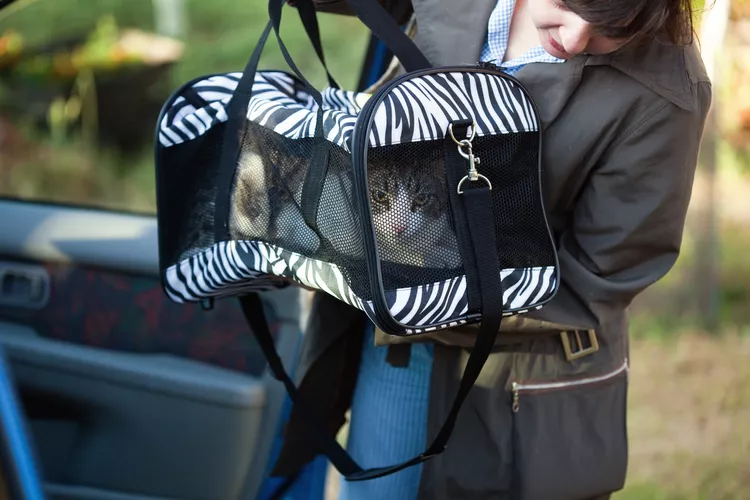
How to Take a Car Trip With Your Cat
Think you can't travel with your cat? Think again! Traveling with your cat just takes a little preparation and planning. Here's how.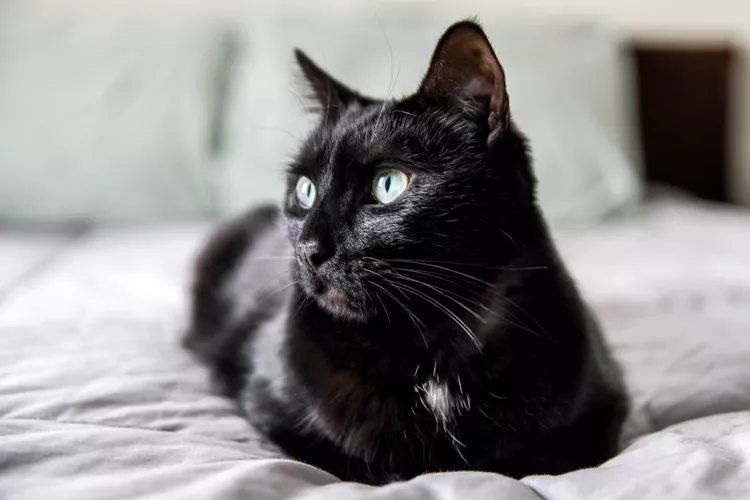
How to Determine Your Cat's Age
Determining the age of an adopted cat is just guesswork, but a vet can look at teeth, sexual maturity, fur coat, and eyes to estimate.
Cat Food Ingredients to Avoid
When checking the nutrition content of cat food, look for ingredients that are not healthy or show it is of poor quality. Avoid these 3 ingredients.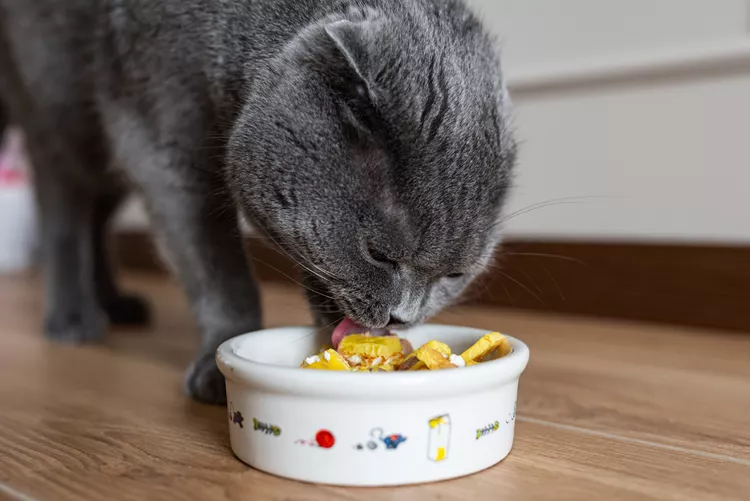
What You Need to Know About Homemade Cat Food
If you want to cook for your cat, make sure to read about the risks associated with homemade diets for cats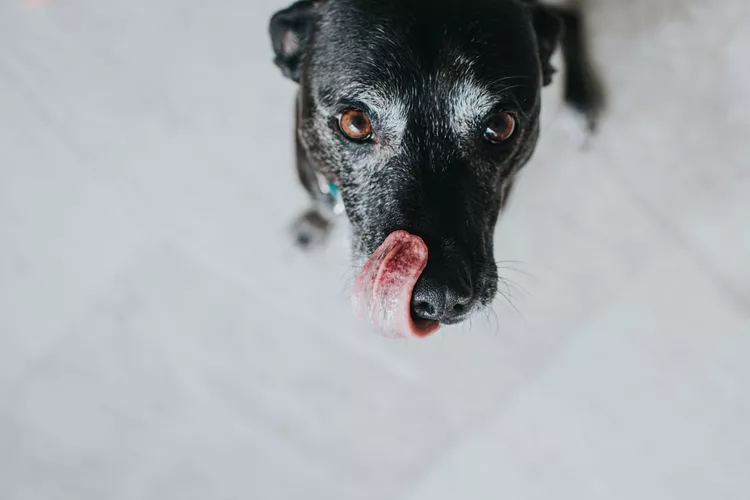
Can Dogs Eat Raw Chicken Feet?
What are the potential health benefits of chicken feet for dogs? What are the risks?
Macadamia Nuts and other Nuts That Are Toxic to Dogs
Find out why macadamia and other nuts are poisonous to dogs, what signs to look for, and what is needed to treat the toxicity.
10 Tips for Taking Care of a Senior Dog
Is your dog a senior? Changes to their diet, exercise, and care are required. Here's how to make sure they're living their best and healthiest life.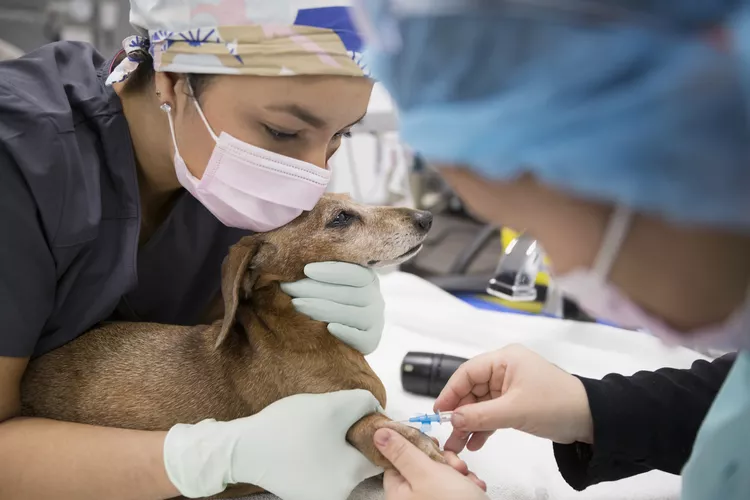
Hookworms in Dogs
Hookworms can make a dog uncomfortable but may also lead to serious blood loss and anemia. Learn the causes, treatment, and prevention.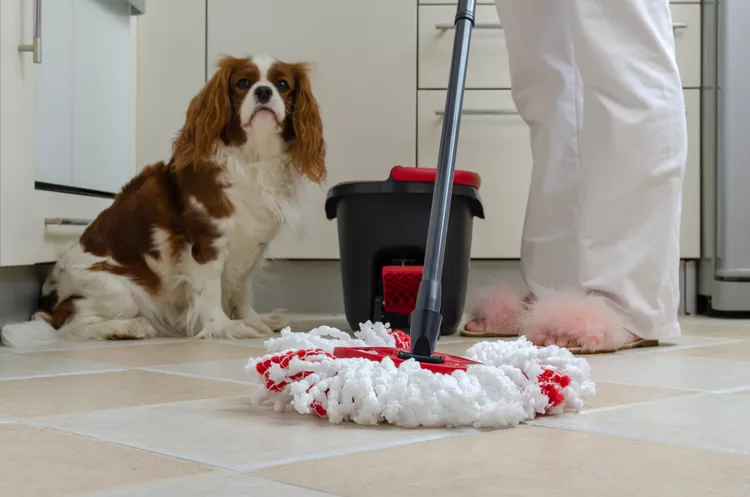
Is Swiffer WetJet Safe to Use Around My Pet?
ASPCA toxicologists deemed Swiffer WetJet to be safe for use around pets, but there are other all-natural floor cleaning options available.
Can Dogs Eat Bread?
Is bread a safe snack for you dog? Are there kinds of bread you should avoid? Learn more about whether it's okay to feed your dog bread.
14 Hypoallergenic Cat Breeds for People With Allergies
There are no true hypoallergenic cat breeds. But some, such as the Siamese and Siberian, might be less likely to cause allergies than others.
Burmilla: Cat Breed Profile, Characteristics & Care
The playful and social burmilla is one of the newest cat breeds to be officially recognized by the CFA. Learn about burmilla breed.
Nebelung: Cat Breed Profile, Characteristics & Care
The Nebelung is a rare breed of domestic cat that’s known for their long gray-blue fur and gorgeous green eyes. Learn about the Nebelung cat breed.
Cymric: Cat Breed Profile, Characteristics & Care
The Cymric, a long-haired Manx, is one of the world's oldest cat breeds. This tailless cat is friendly and playful. Learn about the Cymric breed.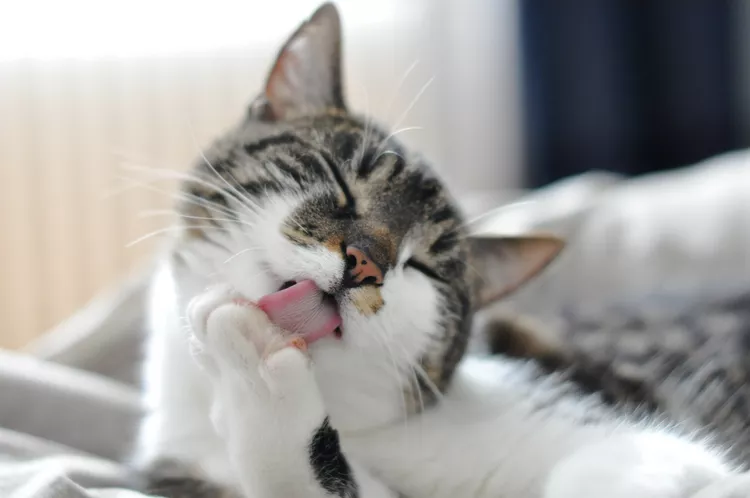
Here's Why Cats Groom Themselves
Learn all about cats' grooming habits: how and why cats groom, including mutual grooming, over-grooming, and displacement grooming!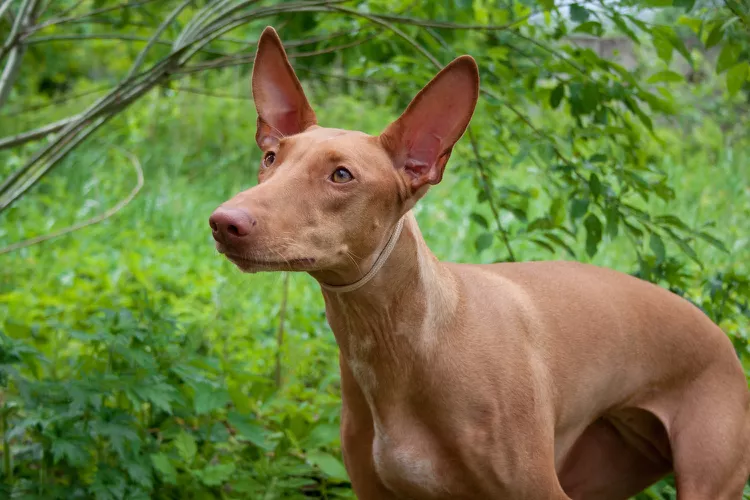
Pharaoh Hound: Dog Breed Characteristics & Care
Learn all about the Pharaoh hound, a sight hound dog breed known for their slim appearance and the ability to blush when excited.
How to Walk Your Dog
Dog walks should be fun for your dog while respecting your community. Learn why walking your dog is important and get essential safety and training tips.
How to Stop Your Dog From Whining
Whining is a natural way for your dog to communicate with you. Explore the reasons dogs whine and how to discourage your dog from whining too much.
How to Stop Your Dog From Barking Excessively
All dogs bark, but excessive barking is a behavior problem. Learn how to help stop excessive barking and prevent it from happening all the time.
How to Train Your Dog to Live With Another Dog
When you add a second dog to your household, it's natural that there will be an adjustment period. Learn how to get two dogs to become acquainted.